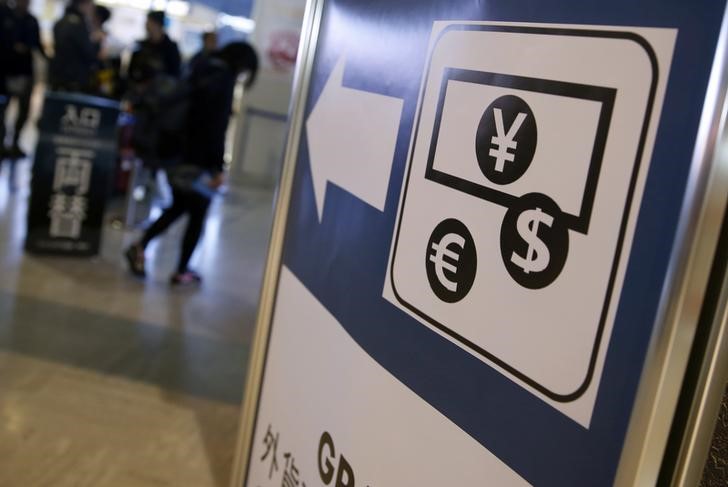Who is Kevin Hassett? Wolfe looks at the Trump ally tipped to become Fed Chair.
Investing.com - The dollar rose to the highest level in two weeks against the yen on Monday after Japan’s finance minister said officials were prepared to intervene in the currency market to stem the yen’s gains if necessary.
USD/JPY hit highs of 107.95, the most since April 29 and was last at 107.88 up 0.71% for the day.
The U.S. dollar index, which measures the greenback’s strength against a trade-weighted basket of six major currencies, ticked up 0.16% to 93.98, off Friday’s lows of 93.08.
The dollar extended early gains against the yen after Japan’s Finance Minister Taro Aso said Monday that Tokyo is ready to intervene in the currency market if excessive moves in the yen are enough to affect Japan’s trade, economic and fiscal policies.
Most traders still expect Japanese officials will not act to weaken the yen in the absence of support for such a move.
The dollar fell to 18-month lows of 105.05 against the yen last week and the U.S. Treasury added Japan to a watch list of countries it is monitoring to gauge whether their foreign exchange policies provide an unfair trade advantage.
In its report, the Treasury noted that the current dollar-yen market was "orderly" and reiterated all countries must abide by G20 and G7 commitments on exchange rate policies, widely seen as a call for Japan to limit foreign exchange interventions.
The yen has strengthened broadly since the Bank of Japan held back from implementing fresh stimulus measures at its April meeting, defying market expectations for further easing.
The strong yen is posing a challenge to the BoJ’s attempts to spur price growth.
Demand for the dollar was also underpinned after New York Federal Reserve President William Dudley said Friday that it was reasonable to expect two rate hikes this year, despite data showing that U.S. jobs growth increased at the slowest rate in seven months in April.
The euro also moved sharply higher against the yen, with EUR/JPY advancing 0.65% to 122.93.
The single currency edged lower against the dollar, with EUR/USD dipping 0.08% to 1.1394.
In the euro zone, data on Monday showed that sentiment among investors and analysts improved slightly in May, but concerns over the outlook for the global economy continued to weigh.
The Sentix investor sentiment index rose to 6.2 from 5.7 in April, compared to expectations for a reading of 6.1.
A separate report showed that German factory orders rose by a larger than forecast 1.9% in March, the biggest increase since June, boosted by strong foreign demand.
